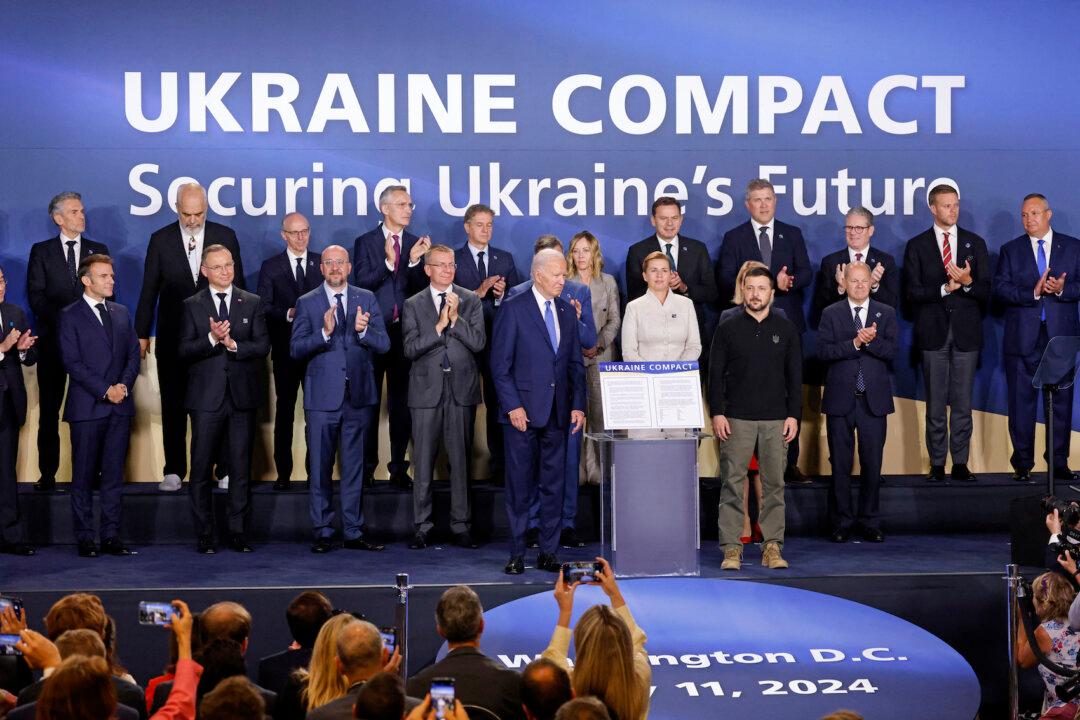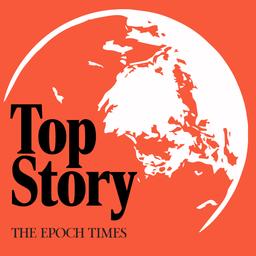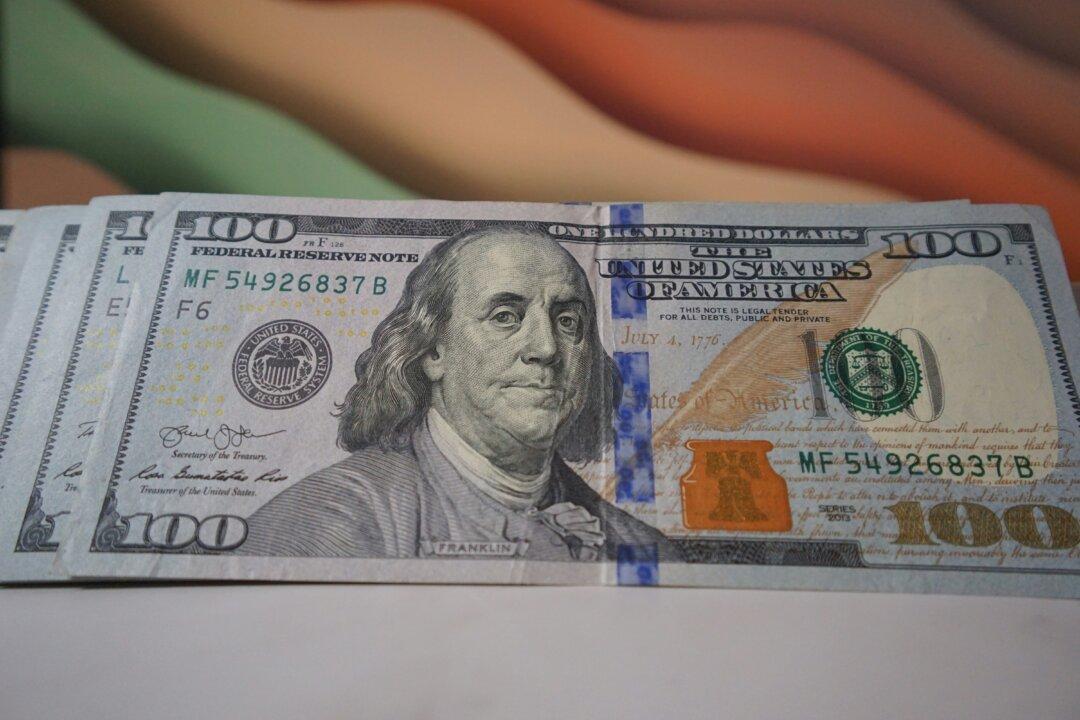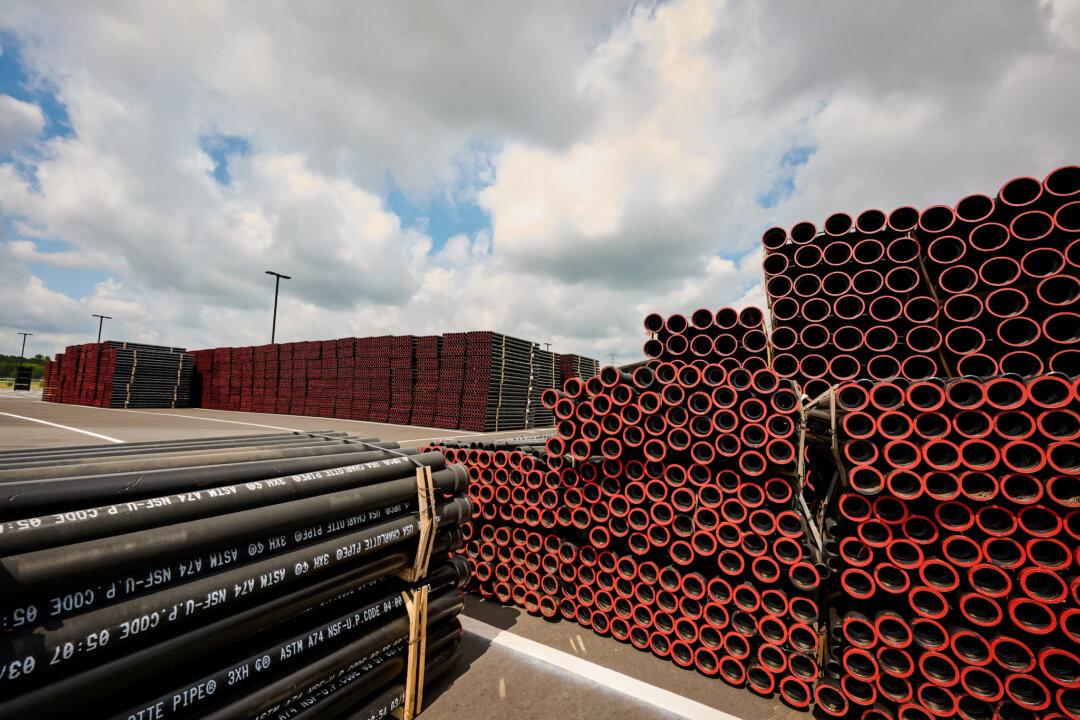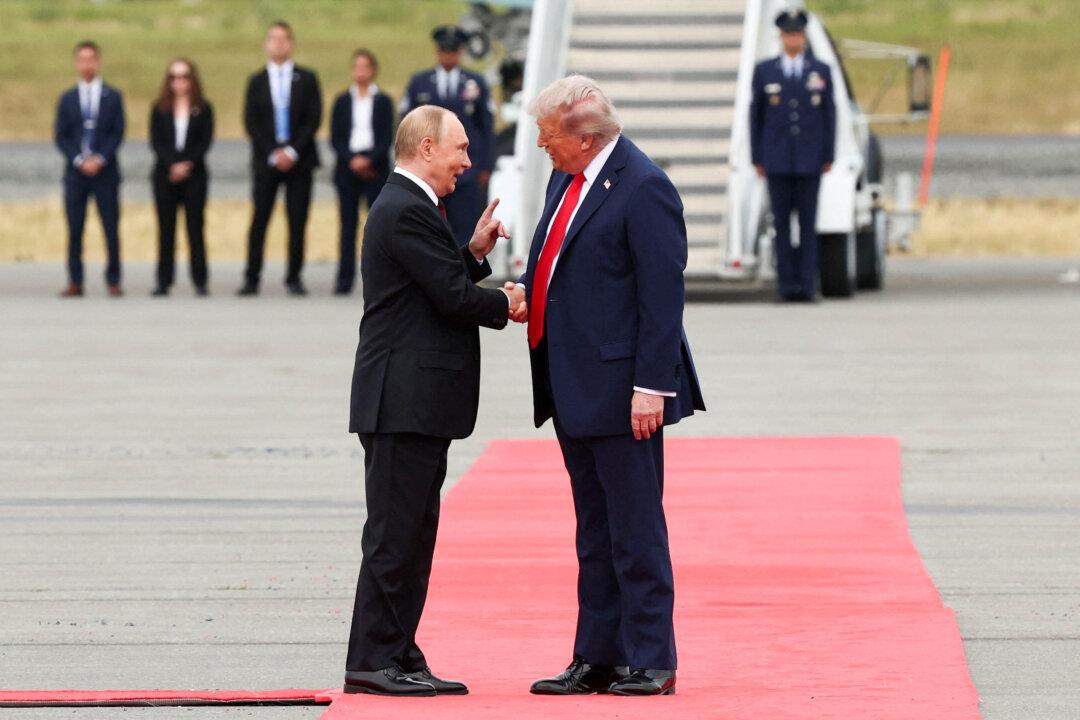WASHINGTON—NATO held its annual summit this week in the nation’s capital, where alliance leaders rededicated themselves to Ukraine’s defense and issued a stern warning to China for its support of Russia.
The summit marked the alliance’s 75th anniversary, and national leaders were eager to walk away from the summit with deliverables for defending Ukraine amid a contentious election year in both the United States and Europe.
